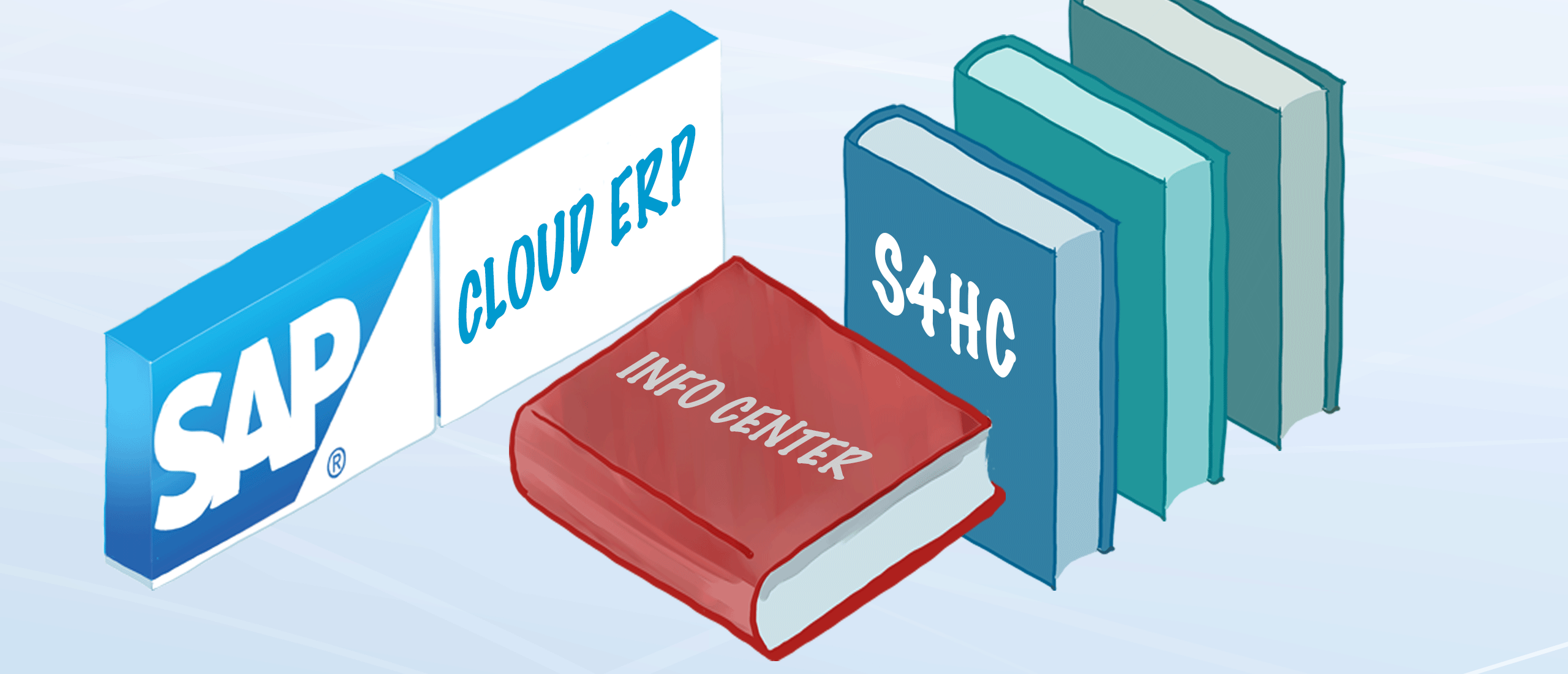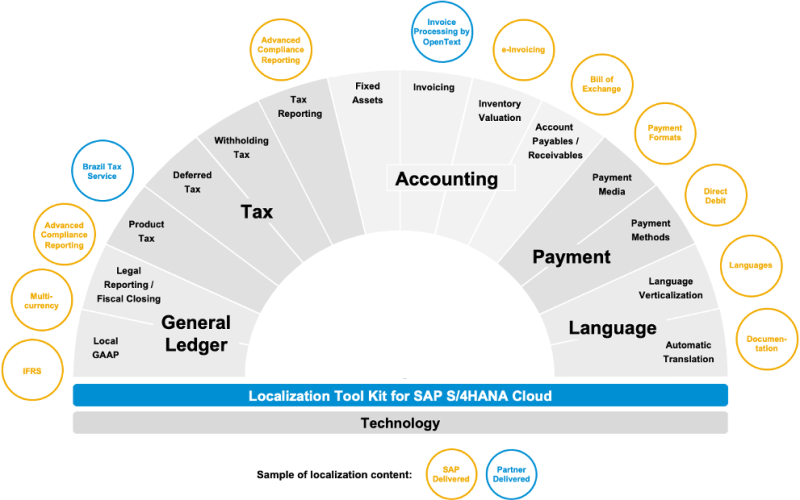
Localization Support
Localization Support
- Pre-built localization for 59 countries/regions in 33 languages
- Stay current with the Legal Change Notification Service
- Deep language and internationalization coverage (e.g., right to left, calendars, etc.)
- Extended country reach with partners through extensions (e.g., Tax Service and Advanced Compliance Reporting)
- In-app extensibility offers customization and content that our global customers need
- Cloud Localization Toolkit for enhancements

Localization within SAP S/4HANA Cloud emerges as a crucial element for businesses aiming to operate globally while adhering to local regulations and requirements. This article delves into the concept of localization as a self-service, an innovative approach introduced by SAP to empower customers and partners to customize and extend the SAP delivered local versions to meet unique regional needs.
SAP managed Localizations
Localized Countries release 2402 - In bold the new added countries:
- Australia
- Austria
- Belgium
- Brazil
- Bulgaria
- Canada
- Chile
- China
- Colombia
- Croatia
- Czechia
- Denmark
- Egypt
- Finland
- France
- Germany
- Greece
- Hong Kong (China)
- Hungary
- India
- Indonesia
- Ireland
- Israel
- Italy
- Japan
- Kazakhstan
- Kuwait
- Luxembourg
- Malaysia
- Mexico
- Netherlands
- New Zealand
- Norway
- Oman
- Peru
- Philippines
- Poland
- Portugal
- Qatar
- Romania
- Russia
- Saudi Arabia
- Serbia
- Singapore
- Slovakia
- Slovenia
- South Africa
- South Korea
- Spain
- Sweden
- Switzerland
- Taiwan (China)
- Thailand
- Turkey
- United Arab Emirates
- United Kingdom
- United States
- Ukraine
Localization as Self-Service
Localization as a self-service in SAP S/4HANA Cloud is designed to address the challenges businesses face when expanding across borders, ensuring compliance with diverse regional regulations. It provides a suite of tools and capabilities allowing enterprises to either extend the SAP delivered local versions or create new local versions where SAP does not offer localized content. This flexibility is pivotal for businesses to efficiently manage their global operations and comply with the varying legal, tax, and business requirements across regions.
Extending SAP Delivered Local Versions SAP S/4HANA Cloud supports 59 SAP delivered local versions out-of-the-box, covering a wide array of local requirements such as tax codes, invoicing standards, and legal entity determinations.
Localization as a self-service enables further customization of these versions to accommodate specific regional variations or industry-specific legal requirements not covered by the standard versions. This extensibility ensures businesses can remain compliant with local laws and regulations while leveraging the robust framework provided by SAP.
Configuration Localization Tool
Creating Customer Local Versions For regions where SAP does not provide a localized version, businesses have the opportunity to create and customize their local versions using the Configuration Localization Tool (CLT). This tool facilitates the scoping of desired local versions, leveraging pre-delivered business content and enabling the setup of organizational structures, currencies, and more, tailored to the local needs. It represents a significant step towards global ERP adoption, making SAP S/4HANA Cloud a viable solution for enterprises operating in any part of the world.
Future Directions
SAP continues to invest in the localization as a self-service feature, with plans to expand the scope of supported local versions and enhance the available extensibility capabilities. The future of localization in SAP S/4HANA Cloud is promising, with a focus on incorporating artificial intelligence to further streamline the localization process and enable businesses to adapt more rapidly to changing global and local regulations.
